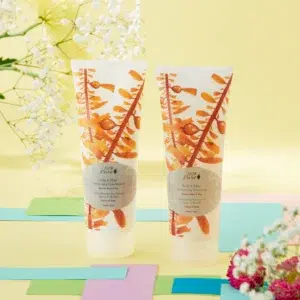Ethical Haircare

In the realm of beauty and personal care, ethical considerations are increasingly becoming a priority for consumers. From skincare to haircare, people are seeking products that not only deliver results but also align with their values and contribute positively to the environment. When it comes to haircare specifically, choosing sustainable shampoos and conditioners is a pivotal step towards reducing our ecological footprint. In this blog post, we’ll explore why ethical haircare matters and provide actionable tips for selecting sustainable haircare products that prioritize both your hair’s health and the planet’s well-being.
Why Ethical Haircare Matters
Before delving into the tips for choosing sustainable shampoos and conditioners, it’s crucial to understand why ethical haircare matters. Traditional haircare products often contain harmful chemicals and toxins that not only pose risks to our health but also have detrimental effects on the environment. These chemicals can pollute waterways, harm aquatic life, and contribute to environmental degradation.
Furthermore, the production and packaging of conventional haircare products often involve unsustainable practices, such as excessive water usage, deforestation for packaging materials, and carbon emissions from transportation. By opting for ethical haircare products, you’re not only taking care of your hair but also making a conscious choice to support brands that prioritize sustainability and eco-friendliness.
8oz Volumizing Shampoo & Conditioner

Tips for Choosing Sustainable Shampoos and Conditioners
- Look for Natural and Organic Ingredients: When selecting sustainable shampoos and conditioners, prioritize products made with natural and organic ingredients. These ingredients are derived from renewable sources and are less likely to contain harmful chemicals like parabens, sulfates, and phthalates. Look for certifications such as USDA Organic or COSMOS Organic to ensure the authenticity of the product’s organic claims.
- Check for Cruelty-Free and Vegan Certifications: Ethical haircare extends beyond ingredients to encompass animal welfare as well. Choose products that are certified cruelty-free and vegan, indicating that they were not tested on animals and do not contain any animal-derived ingredients. Look for logos from organizations like Leaping Bunny or PETA to verify the product’s ethical credentials.
- Opt for Sustainable Packaging: Consider the packaging of the haircare products you purchase. Look for brands that use recyclable or biodegradable packaging materials to minimize environmental impact. Additionally, some brands offer refillable options or use minimal packaging to reduce waste. By choosing products with sustainable packaging, you’re supporting efforts to reduce plastic pollution and promote a circular economy.
- Research Ethical Brand Practices: Take the time to research the brand behind the haircare products you’re considering. Look for brands that are transparent about their sourcing practices, manufacturing processes, and environmental initiatives. Ethical brands often prioritize fair trade practices, support local communities, and engage in sustainable agriculture. Websites, social media channels, and third-party certifications can provide valuable insights into a brand’s commitment to sustainability.
- Consider Concentrated Formulas: Concentrated formulas require less water and packaging material, making them a more sustainable choice. These products are often diluted with water before use, allowing for a longer-lasting supply and reduced environmental impact. Look for shampoos and conditioners that are labeled as concentrated or highly concentrated to maximize efficiency and minimize waste.
- Support Ethical Supply Chains: Choose haircare products from brands that prioritize ethical supply chains and fair labor practices. This includes ensuring that the ingredients are sourced responsibly, workers are treated fairly, and communities are supported. By supporting ethical supply chains, you’re contributing to positive social and environmental outcomes throughout the product’s lifecycle.
- Consider Multi-Functional Products: Simplify your haircare routine and reduce consumption by opting for multi-functional products. Look for shampoos that also offer conditioning benefits or conditioners that provide additional treatment properties. By consolidating your haircare products, you can minimize waste and streamline your beauty routine while still achieving desired results.
Ethical haircare is not just a trend; it’s a conscious choice that reflects our commitment to sustainability and environmental stewardship. By choosing sustainable shampoos and conditioners, we can support brands that prioritize ethical practices, minimize our ecological footprint, and promote a healthier planet for future generations. Remember to consider factors such as natural ingredients, cruelty-free certifications, sustainable packaging, and ethical brand practices when selecting haircare products. Together, we can make a positive impact on the world while still enjoying beautiful, healthy hair.




